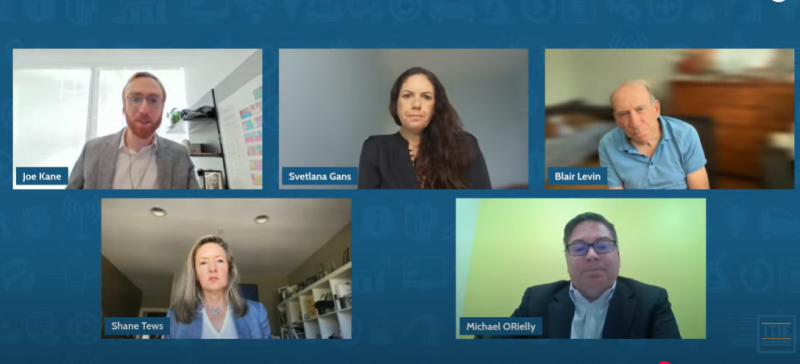- Consumers don’t care about competing ISPs, they just want the tech to work, said former FCC Commissioner Michael O’Reilly
- It’s not just about what the consumer wants, it’s critical to have speeds that are “ahead of the applications,” said NSR analyst Blair Levin
- From an antitrust perspective, speed, price and number of ISPs aren’t the only things that matter for competition
As competition of all kinds of technologies ramps in the broadband market, policy experts debate about how much speed should matter as a metric for quality service.
“We try to sell these rocket ships when most people really need a bicycle or maybe a moped,” he said at an Information Technology and Innovation Foundation (ITIF) panel this week.
But the speeds consumers need and “what the country needs” are two different things, said Blair Levin, New Street Research policy analyst and non-resident senior fellow at Brookings.
While he agreed with O’Reilly many consumers may be buying higher speeds than what they require for daily tasks, high speed access is still critical for the people designing applications that can “take advantage of that extra power.”
“My basic perspective is that we should have a speed which [is] ahead of the applications,” Levin said. “We had exactly the opposite for the first, roughly speaking, 20 years of the internet.”
The FCC only last year raised its minimum internet speed benchmark from 25 Mbps downstream and 3 Mbps upstream to 100/20 Mbps. The previous benchmark had been in place since 2015.
The Biden-era FCC also set a long-term speed goal of 1-gig downstream and 500 Mbps upstream (which is typical for a fiber connection), but Chairman Brendan Carr wants to axe that goal as it could “[skew] the market by unnecessarily potentially picking technological winners and losers.”
Metrics aside, it’s important that providers are aware of what’s actually causing issues for customers, according to Shane Tews, nonresident senior fellow at the American Enterprise Institute. (AEI). What consumers might interpret as a speed problem could be an issue with how an operator configured its website, for example.

“They’ll think it’s just speed and they are not getting enough speed from their provider. A lot of times it’s a matter of making sure the information is configured right,” she said.
Svetlana Gans, a partner at Gibson Dunn who focuses on antitrust and related policy matters, noted speed and price are just some of the factors antitrust laws consider when they determine if broadband markets are operating competitively. For the consumer, things like “safety and durability” (e.g. protecting data from cyber threats) as well as whether an ISP has solid “privacy protections” can be deal-breakers.
Furthermore, just counting the number of providers doesn’t answer the question of whether a market is competitive and “how well consumers might be served,” Gans said.
Are more mega deals coming? Maybe not
As broadband mergers accelerate and larger ISPs scoop up smaller players, panelists agreed consolidation won’t slow down. However, they think some of the bigger deals the telecom industry hypothesized about probably won’t happen.
“We always talked about a cable company buying a wireless provider or the other way around. I’m not sure that plays anymore,” said O’Reilly. He noted some providers will still have to go through a “very contentious” approval process, especially if they have “perspectives that may not sell well with this administration,” likely referring to the Trump admin’s crackdown on DEI.
On the cable side, Levin thinks a few more mergers are on the horizon aside from Charter/Cox. “Altice will eventually be sold and so you’ll basically have two very large cable companies,” he said. But some other possibilities, such as T-Mobile merging with Charter or even Comcast, seem like more of a stretch.
“I don’t see a lot of interest in that but that’s the last big deal people are talking about,” Levin added.
